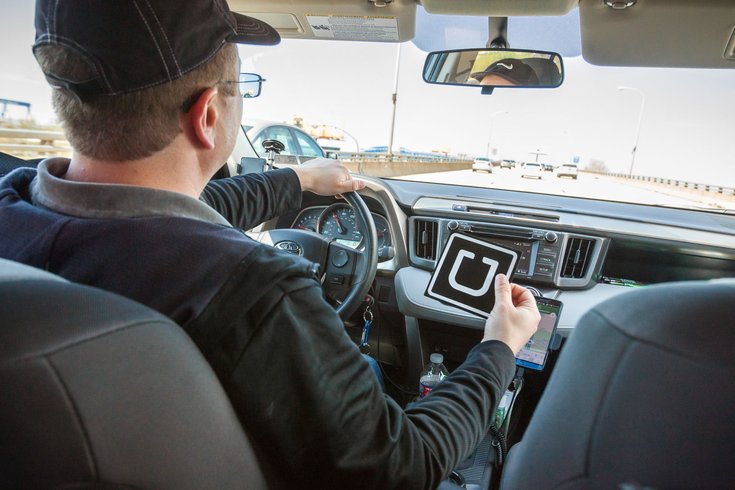
September 30, 2016
 Thom Carroll, File/PhillyVoice
Thom Carroll, File/PhillyVoice
An UberX driver keeps his Uber sticker in his car console when driving in Philly.
Three months ago — just prior to the Democratic National Convention — the Pennsylvania legislature approved a temporary agreement legalizing popular ridesharing services like Uber and Lyft in Philadelphia.
That agreement, which provides funding to the School District of Philadephia, runs through Friday. Legislation to permanently legalize the ridesharing services is not imminent, nor is an extension of the temporary agreement likely.
That means, come Saturday, both Uber and Lyft again will operate without the approval of the Philadelphia Parking Authority, which regulates taxi and limousine services in the city. And the funding stream for the school district will run dry, at least until a permanent agreement is reached.
"At this point, I don't think there are serious conversations happening about extending the temporary agreement," said Ben Waxman, press secretary for state Sen. Vincent Hughes, who helped spearhead the temporary agreement.
Enacted in July, the temporary agreement enabled ridesharing services to operate legally through Friday in Philadelphia, the only county in Pennsylvania where they could not operate. The agreement included a 1 percent ridesharing tax on all rides. The School District of Philadelphia receives two-thirds of the tax revenue; the PPA gets the other third.
Hughes favors maintaining that tax breakdown as part of a permanent agreement, Waxman said. For months, the legislature has been crafting legislation to legalize and regulate ridesharing companies. The hope is that a bill will be passed by the end of the current legislative session, but that remains to be seen.
"There is generally broad agreement among Philadelphia lawmakers about how this should proceed," Waxman said. "Unfortunately, things are getting bogged down with folks from outside Philadelphia playing a pretty sizable role."
In the meantime, both Uber and Lyft are calling for the temporary agreement to be extended.
"Due to the legislature's failure to act we are actively working with regulators to continue the regulated ridesharing model that is currently in place and are confident that we will be able to continue to operate in Philadelphia," Uber spokesperson Carlie Waibel wrote in an email.
Chelsea Harrison, Lyft's senior policy communications manager, said the temporary agreement brought "tens of thousands of dollars from Lyft alone" to city schools.
"We’ve also been able to partner with the airport and local businesses, further generating revenue for the city and helping thousands of Philadelphians get around easily and safely," Harrison wrote in an email. "Unfortunately, all of this progress could come to an abrupt end on Oct. 1 if legislators do not act now and either make the agreement permanent, or extend it so that we can continue to work toward creating a permanent framework that works for all of Pennsylvania.”
A PPA spokesman did not respond to a message seeking comment. The PPA previously has held sting operations to impound the cars of ridesharing drivers. The ridesharing companies have covered the costs of its drivers to recover their cars.
As part of the temporary agreement, Uber agreed to pay the PPA $350,000 for operating without regulation — once permanent legislation regulating ridesharing services is reached.
Under the regulation of the Pennsylvania Public Utilities Commission, ridesharing services operate legally throughout the rest of the state.